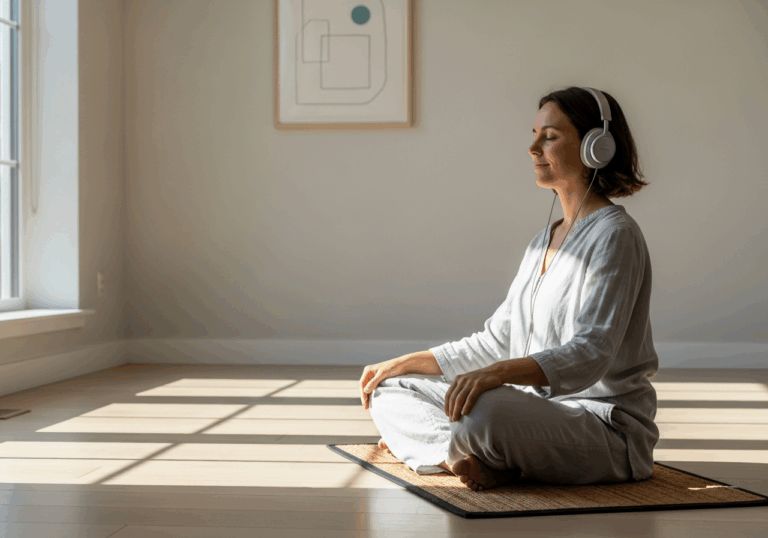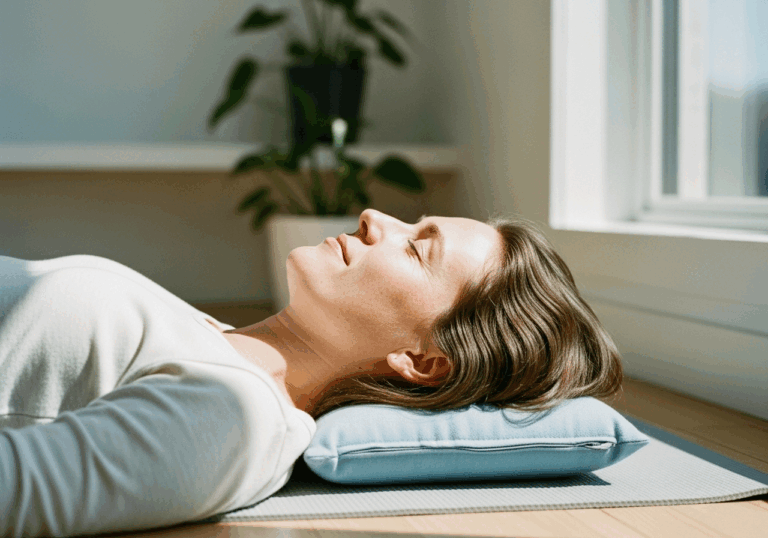Science-Backed Tips
Enhance Your Mood with VR Environments
Experience a 37% boost in emotional awareness through VR.
📊 Did you know?
💡 Why It Matters
1️⃣
Improving emotional awareness can lead to better mental health outcomes, reducing anxiety and depression symptoms.
2️⃣
Enhanced emotional tuning through VR can improve interpersonal relationships by fostering better communication.
3️⃣
Utilizing VR for emotional awareness may reduce the need for traditional therapy sessions, offering a cost-effective alternative.
✅ Try These Micro-Tips
🎯
Engage in 20-minute VR sessions focused on emotional environments at least three times a week.
🎯
Explore different emotional VR spaces to identify which environments resonate most with your feelings.
🎯
Combine VR sessions with journaling to reflect on emotional changes and insights.
🎯
Share your experiences with a community or support group to enhance emotional processing.
📚 The study
This significant boost in self-awareness highlights the potential of spatially-triggered awareness to enhance emotional tuning.
Why does this matter? Improved emotional awareness can lead to better mental health outcomes, effectively reducing symptoms of anxiety and depression.
Furthermore, enhanced emotional tuning through VR can foster better interpersonal relationships by promoting clearer communication.
By utilizing VR for emotional awareness, we may even find a cost-effective alternative to traditional therapy sessions, making mental health support more accessible to everyone.
As we continue to explore the intersection of technology and emotional well-being, the implications of these findings could revolutionize how we approach mental health care, offering new pathways to understanding and managing our emotions in a rapidly changing world.
❓ Frequently Asked Questions ❓
Learn more
How does VR enhance emotional awareness?
VR enhances emotional awareness by immersing users in trigger-focused architectural spaces that align with specific emotions. This alignment can lead to a reported increase in emotional accuracy by up to 37%.
What is the average increase in emotional accuracy reported by participants?
Participants reported an average increase of 37% in self-reported emotional accuracy after navigating VR simulations. This suggests that VR can significantly improve one’s ability to recognize and understand their emotions.
Can VR help improve mental health?
Yes, improving emotional awareness through VR can lead to better mental health outcomes, including reduced symptoms of anxiety and depression. By enhancing emotional tuning, individuals may experience improved overall well-being.
How often should I engage in VR sessions for emotional awareness?
It is recommended to engage in 20-minute VR sessions focused on emotional environments at least three times a week. Regular practice can help reinforce emotional awareness and tuning.
What should I do during VR sessions?
During VR sessions, explore different emotional environments to identify which spaces resonate most with your feelings. This exploration can help you better understand your emotional responses and triggers.
How can journaling complement VR sessions?
Combining VR sessions with journaling allows for reflection on emotional changes and insights gained during the experience. This practice can deepen your understanding of your emotional journey.
Can VR reduce the need for traditional therapy?
Utilizing VR for emotional awareness may offer a cost-effective alternative to traditional therapy sessions. While it may not replace therapy for everyone, it can be a valuable tool for emotional processing.
How does enhanced emotional tuning affect relationships?
Enhanced emotional tuning through VR can improve interpersonal relationships by fostering better communication. When individuals are more aware of their emotions, they can express themselves more effectively to others.
Is there a community aspect to using VR for emotional awareness?
Yes, sharing your experiences with a community or support group can enhance emotional processing. Engaging with others can provide additional insights and support during your emotional journey.
What types of emotional environments should I explore in VR?
You should explore a variety of emotional VR spaces to find those that resonate most with your feelings. Different environments can evoke different emotional responses, aiding in your overall emotional awareness.





